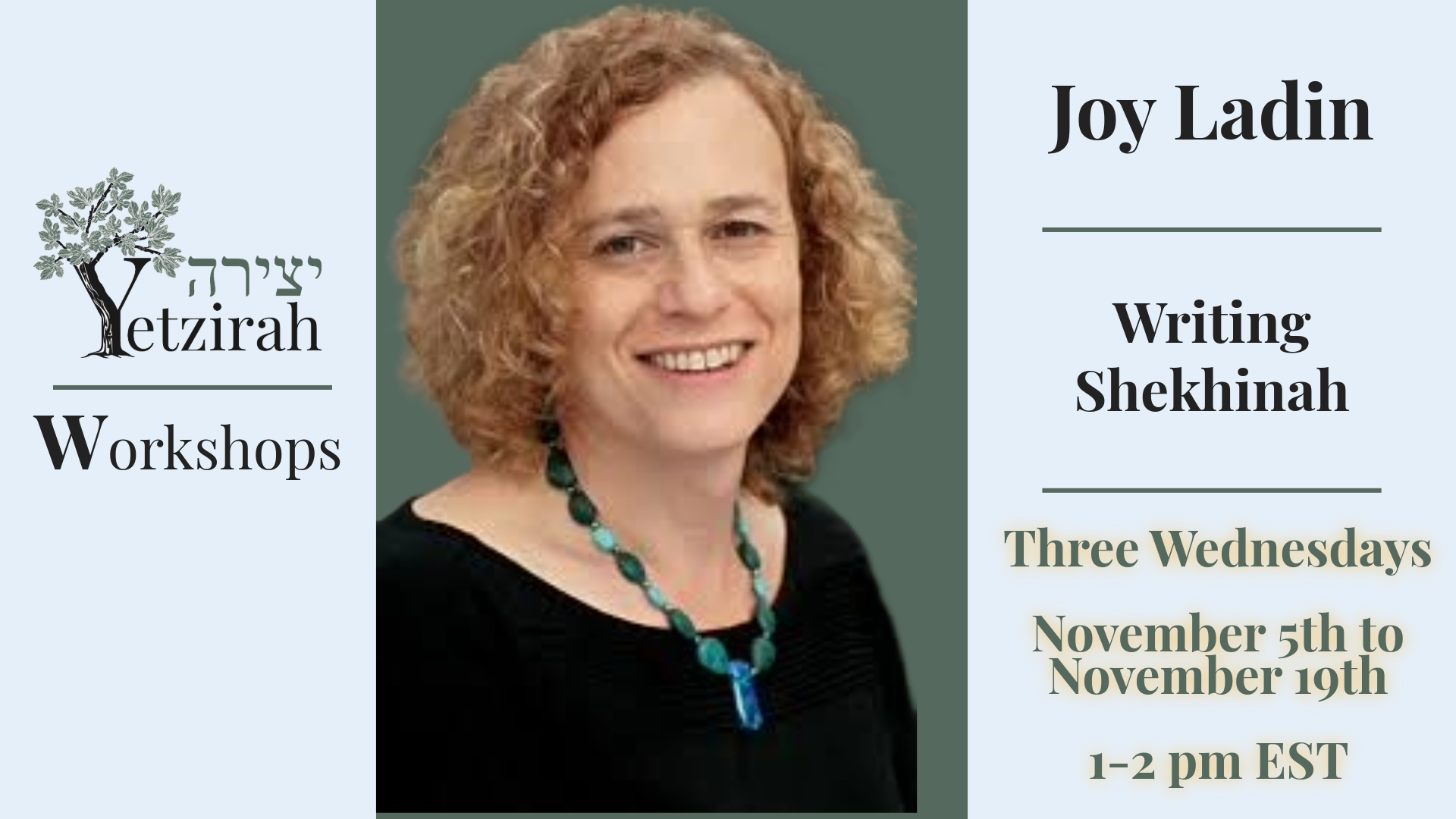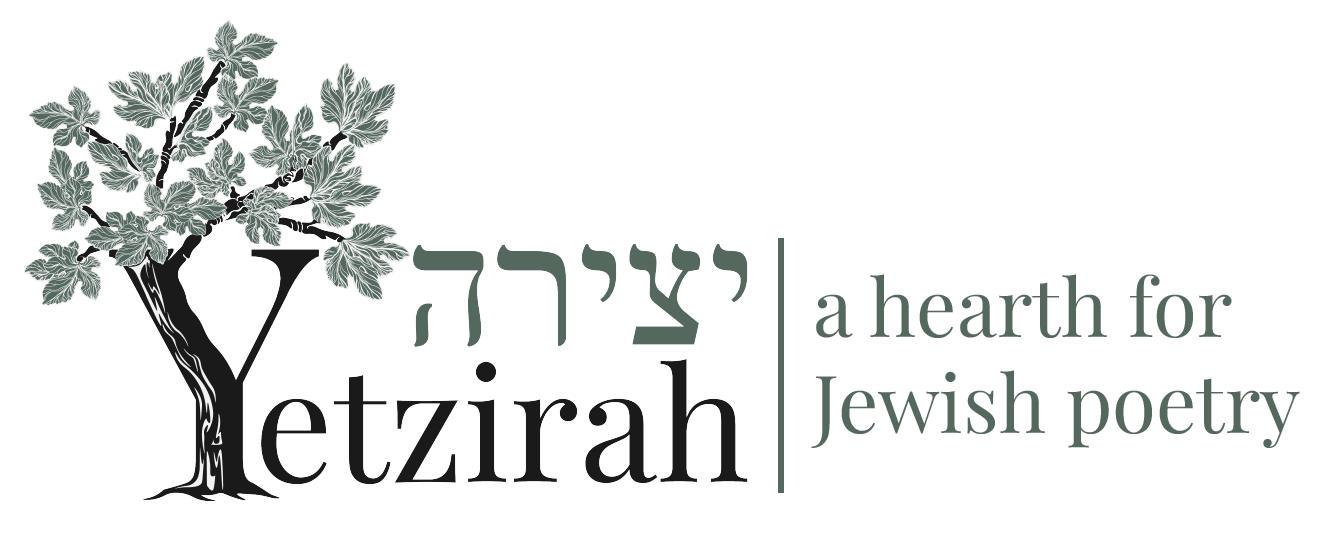
November 5-19: “Writing Shekhinah” Workshop with Joy Ladin
One of the most ancient functions of poetry is to make divine presence perceptible through language. This class will probe the intersections between language, poetry, and the Shekhinah, Jewish tradition’s name for divine presence, an aspect of God that who is present in human time, space, relationships, and communities, and shares our lives and sufferings rather than looking down on them from above. Unlike other ancient forms of divine presence, many of which emerge through prophecy, vision, and received traditions, the Shekhinah first emerged in writing by rabbis who knew that the Shekhinah, a rabbinic term derived from a Biblical verb used to refer to God “dwelling” among the Israelites, did not appear in the Torah or earlier traditions. Instead, the Shekhinah was a conception of divine presence (actually many conceptions) developed by the rabbis, not in response to revelation but to human spiritual needs. We will explore some of the texts in which the Shekhinah first emerged as well as later, quite different, female-identified versions of Her, including medieval mystical texts and poetry by Jewish feminists working to raise the Shekhinah’s profile in contemporary Judaism. We will discuss these texts both to get to know some of the many things Shekhinah and divine presence have meant in Jewish tradition, and also to understand the linguistic techniques they use to conceive and evoke Her. We will practice these techniques through exercises designed to help us use our own writing to search for, question, imagine, encounter, and respond to the Shekhinah, or whatever we understand as presence beyond the human.
